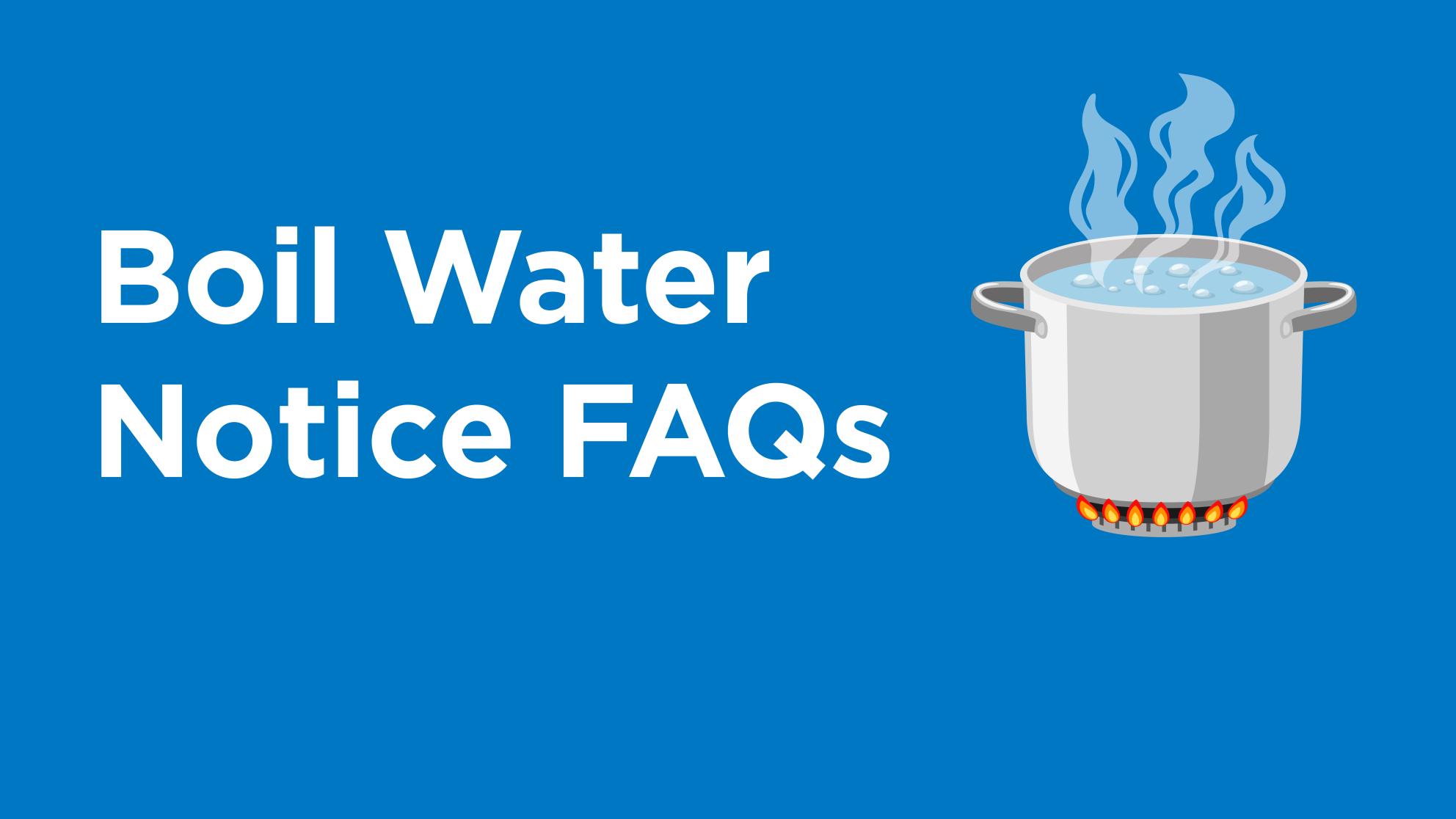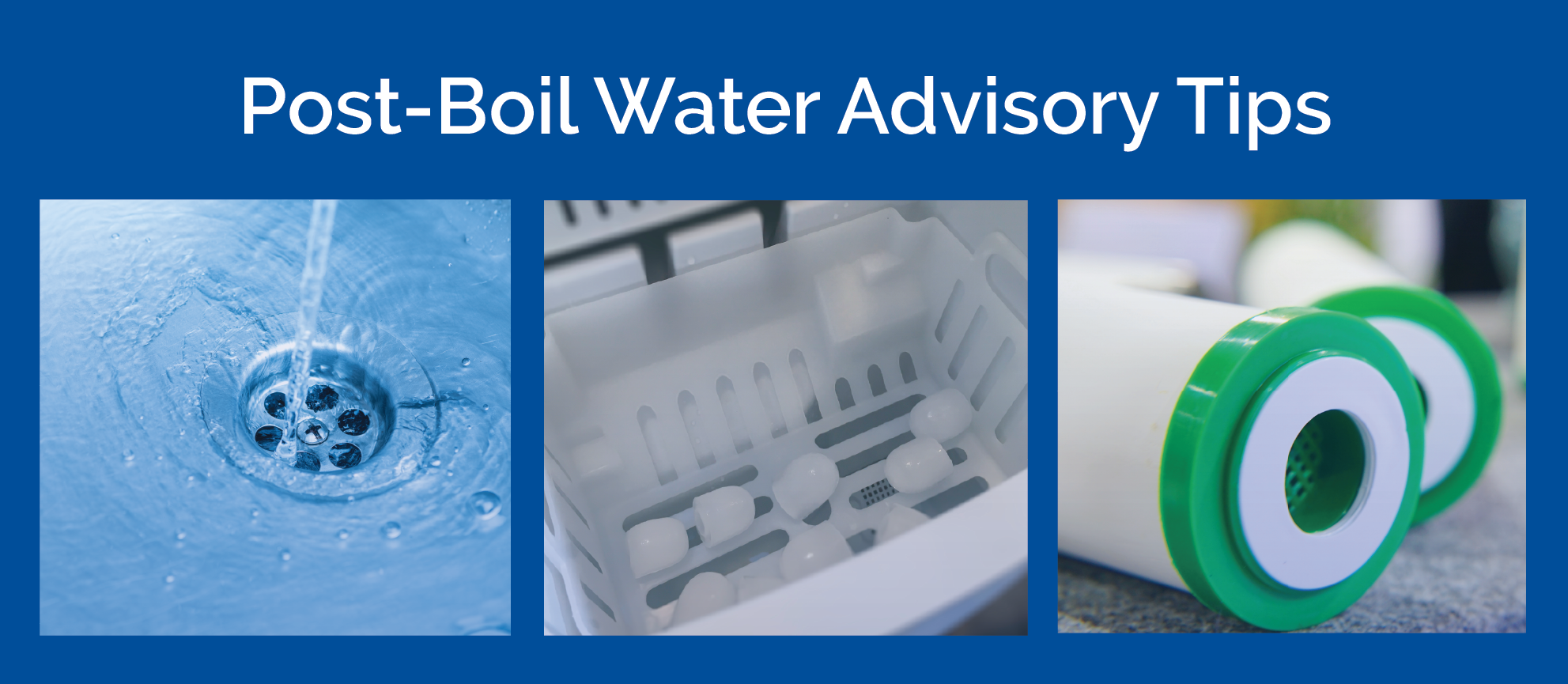
Boil Water Notices
Understanding Boil Water Notices
Did you find a notice on your door or receive a message through phone, email, or text instructing you to boil your water?
SJW typically issues this notice when there's a decrease in the pressure of the water main, caused by things like breaks, power outages, or maintenance activities. It means you should boil your tap water before using it or opt for bottled water instead. In many instances, we'll also provide bottled water right at your doorstep alongside the notice.
Although rare, a drop in water pressure can sometimes allow pollutants to seep into the water supply. Boiling the water kills off any potential harmful organisms that might have made their way into your drinking water.
After issuing a boil water notice, we conduct thorough testing to ensure the water's safety. We collect samples over a two-day period. As soon as we verify the water is free from any contaminants, we will contact you to let you know it's safe to stop boiling your water.
Here's your action plan.
How to Boil Water Safely
- Heat water on your stove until it starts to bubble vigorously.
- Keep it boiling for one full minute.
- Turn off the heat and let the water cool down.
Once it's cool, it's ready to use. You may want to store cooled boiled water in the fridge for later use.
How Long Will I Have to Boil Water?
Continue to boil your water or use bottled water for about 48 hours, or until we notify you that the advisory has ended. Use boiled water for drinking, cooking, and any other needs until tests show the water is clean again.
When to Use Boiled or Bottled Water:
- Drinking: This includes making coffee, tea, or any powdered drinks.
- Preparing Food: Use it for washing fruits, vegetables, or any other food that won't be cooked or baked.
- Baby Formula: If you're feeding infants with formula, ensure all feeding equipment like bottles, nipples, and pump parts are washed in soapy tap water and sterilized before each use.
- Cooking: Always use boiled or bottled water when adding water directly to food that won't be heated up or cooked.
- Oral Hygiene: Brush your teeth and rinse your mouth with boiled or bottled water.
- Ice Making: Only use boiled or bottled water to make ice cubes.
- Cleaning Kitchen Surfaces: Use it for washing areas where you prepare food, such as cutting boards and countertops.
- Eye Care and Contact Lenses: Rinse your eyes or contact lenses with boiled or bottled water. Make sure to clean your contacts with the proper solution and wash your hands thoroughly before handling them.
- Taking Medications: Swallow your pills with boiled or bottled water.
- Treating Wounds: Clean any wounds or sores with boiled or bottled water as a safety measure, especially if you have a weakened immune system. If you're at higher risk, please talk to your doctor for advice.
When Boiled Water Isn't Needed:
- Showering and Bathing: It's safe to shower or bathe, but ensure no water is swallowed, especially by children. For infants and toddlers, a sponge bath is recommended to avoid ingestion.
- Shaving: Water straight from the source is fine for shaving.
- Doing Dishes: Wash dishes, utensils, and cookware using soap and water. Rinse them with boiled water or use a dishwasher on its sanitizing cycle.
- Laundry and Cleaning: Tap water is suitable for laundry, as well as general house cleaning and mopping.
- Handwashing: Use soap and water, scrubbing your hands for at least 20 seconds, then rinse and dry thoroughly.
- Pets' Drinking Water: Generally, water is okay for animals due to their natural resistance to certain contaminants. However, if concerned, boiled water is a safer option.
- Pet Bathing: Bathing your pets with water is acceptable.
- Watering Plants and Lawn Irrigation: The water is safe for gardening and lawn care. However, wash any produce with boiled or bottled water before eating.
- Toilet Flushing: The water is perfectly fine for flushing toilets.
Is hot tap water safe?
No, all water from the hot or cold tap should be boiled for 1 minute.
What about water filters at home or in stores?
These systems' effectiveness can vary, so it's safest to use boiled or bottled water.
Can I use bleach to make water safe?
Yes, for clear water, add 1/8 teaspoon (or about 10 drops) of unscented household bleach (5.25% sodium hypochlorite) per gallon of water. Stir well and wait 30 minutes before using.
Are camping water filters or treatments okay?
There are many outdoor water treatment options, but their ability to remove bacteria, parasites, and viruses varies. Follow the manufacturer's instructions carefully. If in doubt, stick to boiled or bottled water.
Feeding Infants
Keep breastfeeding if you're already doing so. For formula, use ready-to-use options or prepare with safe water.
Feeling Unwell?
If you experience symptoms like diarrhea or nausea, consult a healthcare provider, especially if you suspect it's related to the water.

Once we lift the boil water advisory:
- Run taps for 2 minutes or until the water is cold to clear out your pipes.
- Check and manage your building's water system if necessary.
- Throw away any food or drinks made with water during the advisory.